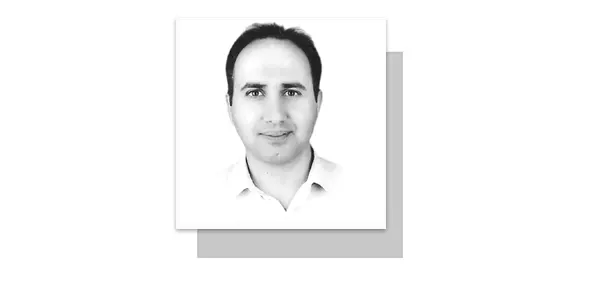THE dynamic personality of Quaid-i-Azam was a combination of the characteristics of the eminent leaders of the world. He had the acumen of Ata Turk, charisma of Churchill, dignity of De Gaulle, frankness of Faisal, greatness of Gandhi, magnetism of Mandela and rationality of Roosvelt. Former US President Clinton at the Chief Executive’s lunch in Islamabad in 2001 described Quaid-i-Azam as a greatest constitutional lawyer of the Commonwealth. Dr. B.R. Ambedker, the Architect of the Indian Constitution, writes that “It is doubtful if there is a politician in India to whom the adjective incorruptible can be more fittingly applied”. Quaid-i-Azam was ambassador of Hindu-Muslim unity, a great constitutionalist, a distinguished parliamentarian, a brilliant and strategist politician, a tireless freedom fighter, a gifted debater and orator, consummate master of logic, a profound lawyer, a sound statesman, a dynamic mass leader and above all, one of the greatest nation builders in modern times. He stood for justice, for freedom, for equal rights, for the rule of people, for an open society and for a noble Pakistan. Quaid-i-Azam devoted the last two decades of his life to the relentless struggle to realize the dream of an independent state of Pakistan.
Following Pakistan’s birth, the country faced numerous challenges, both genuine and initiated by India, which were crucial to state’s existence. The core issues faced by Pakistan included Jammu and Kashmir, Pakhtunistan, princely states, refugee influx, administration, financial resources, asset division, armed forces division, foreign policy trends, foreign missions, constitution framing, and provincial governments. Despite these challenges, the leader remained determined and worked tirelessly to build a strong, wise, and wealthy country. He embraced the diversity of citizens, including Parsis, Hindus, Christians, Jews, and Muslims, and worked harmoniously to create one nation.
The Muslim League had only a few thousand members in Lucknow in 1937; the Quaid dedicated his life to strengthening it, and by March of 1940, when the League had its largest assembly, it had grown to half a million members, seeking the foundation of Pakistan. The French philosopher Renan is correct when he states that “man is not enslaved by his race, religion, the course of rivers, or the direction of mountain ranges. An aggregation of man, sane of mind and warm of heart, creates a moral consciousness and infuses in the masses the idea of reasserting their hegemony, and prepares them for achieving their lost empire”.
Quaid-i-Azam was pragmatist who never permitted his vision to be obscured by emotionalism. HV Hudson in his ‘The Great Divide’ eulogizes Quaid’s character in these words “Not even his political enemies ever accused Jinnah of corruption or self-seeking. He could be bought by no one, and for no price. Nor was he in the least degree weathercock, swinging in the wind of popularity or changing the times. He was a steadfast idealist as well as a man of scrupulous honour”. Even Lord Mountbatten for all his hostility towards Pakistan and the Quaid, made the admission that “If it could be said that any single man held the future of India in his palm, that man is Mohammad Ali Jinnah. To all interests and purposes, Jinnah was the Muslim League and if the dream of Pakistan ever did come true, it could be Jinnah who brought it to life and fashioned it”.
The brave and resolute leader Quaid-i-Azam endured multiple battles without expressing his grief. His commitment to what was good and noble was often seen as stubbornness. His prodigious workload and disobedience to medical advice ultimately resulted in his demise since he was unwilling to share his agony with others. According to Richard Symonds (The making of Pakistan) “Mr. Jinnah had worked himself to death, but contributed more than any other person for survival of Pakistan”. To quote Lord Pathick Lawrence “Ghandi died by the hands of an assassin, Mr. Jinnah died by his devotion to Pakistan”.
Throughout his career as a politician and as a legislator, Quaid’s dedication to the rule of law and constitutionalism was unswerving. During the past seventy-six years, we have made a mockery of these values. It is not as if there has been no progress and development. No country ever wholly stagnates, we have progressed in many fields. We have become a nuclear power. Our economy has expanded. The cities of the Quaid’s days have grown beyond belief, and glittering new palaces have come up everywhere. It would have been impossible to stand still for seven decades but the benefits of development have been unevenly spread, and mostly have accrued to the privileged classes. Most of all, there is a sense of general disorientation: we do not know where we are heading and what we want to make of our country.
For years together we have functioned without the benefit of constitutional governance, and our destiny has been decided by a string of military rulers. Periods of representative rule have been perverted by the venality of a few politicians. In this protracted struggle between politicians and the military, both have suffered a loss of popular trust. The people have seen the two wrangled as economic and social problems have piled up. There has to be a future for Pakistan beyond all the skullduggery of the past and the present. Indeed, we have so emasculated the Quaid’s ideals that some people question whether they are any longer relevant as a frame of reference. But it would be a grievous mistake if we fell into the error of seeking to compromise further on his faith in democracy and moderate Pakistan as the only course to follow.
—The writer is PhD in Political Science and visiting faculty member at QAU Islamabad.
Email: zafarkhansafdar@yahoo.com










